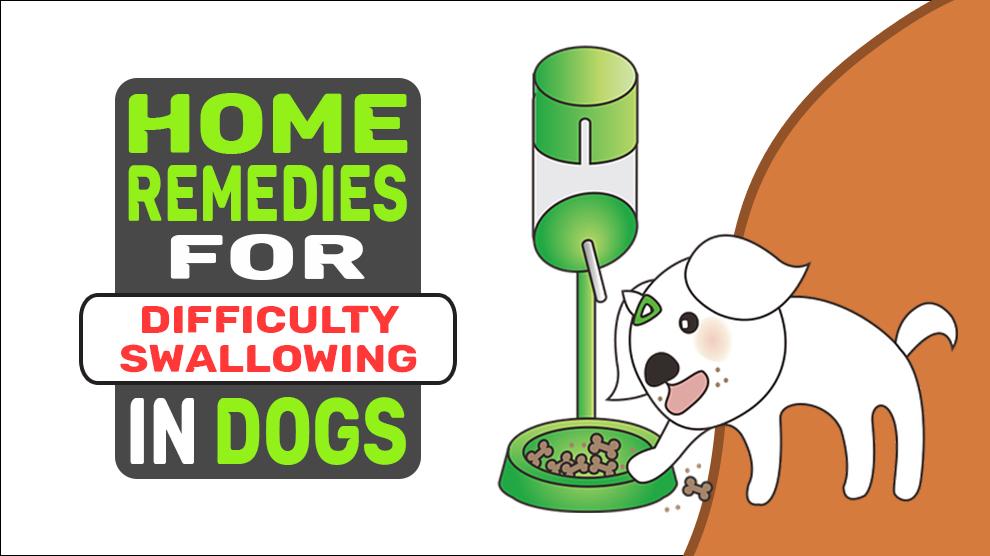Possible Diseases For Difficulty Swallowing
- Pharyngeal Paralysis - Read More -> Pharyngeal Paralysis In Dogs
- Esophageal Strictures - Read More -> Esophageal Strictures In Dogs
- Esophagitis - Read More -> Esophagitis In Dogs: Symptoms, Causes, & Treatments
- Anorexia - Read More -> Anorexia In Dogs
- Regurgitation - Read More -> Regurgitation In Dogs
- Megaesophagus - Read More -> Megaesophagus In Dogs - Symptoms & Treatments
- Esophageal Dysmotility - Read More -> Esophageal Dysmotility In Dogs
Home Remedies For Difficulty Swallowing
Swallowing difficulty in dogs, also known as dysphagia, can be a sign of various medical conditions, such as the throat or esophageal problems, neurological disorders, or dental issues, and it's important to have your dog evaluated by a veterinarian to determine the underlying cause.
Once the underlying condition is diagnosed, your veterinarian may recommend appropriate treatment, which may include medication, dietary changes, or surgery.
Here are some home remedies that may help alleviate swallowing difficulty in dogs:
- Soften food: If your dog is having difficulty swallowing, offer soft foods such as canned food, cooked meats, or pureed vegetables. Soaking dry kibble in water or broth can also help soften it.
- Elevated feeding: Feeding your dog from an elevated position can help reduce the strain on its neck and throat. Use a raised feeder or place their food bowl on a stable surface such as a stool.
- Water: Offer your dog plenty of fresh water to help moisten its throat and make swallowing easier.
- Smaller portions: If your dog is having difficulty swallowing, feed smaller portions more frequently throughout the day to make it easier for them to eat.
- Keep your dog calm: Excitement or stress can make swallowing more difficult. Keep your dog calm during meal times by feeding them in a quiet, relaxed environment.
It is important to remember that these home remedies are not a substitute for veterinary care. If your dog's swallowing difficulty persists or is accompanied by other symptoms such as coughing, gagging, or vomiting, it is important to seek veterinary attention immediately.

















